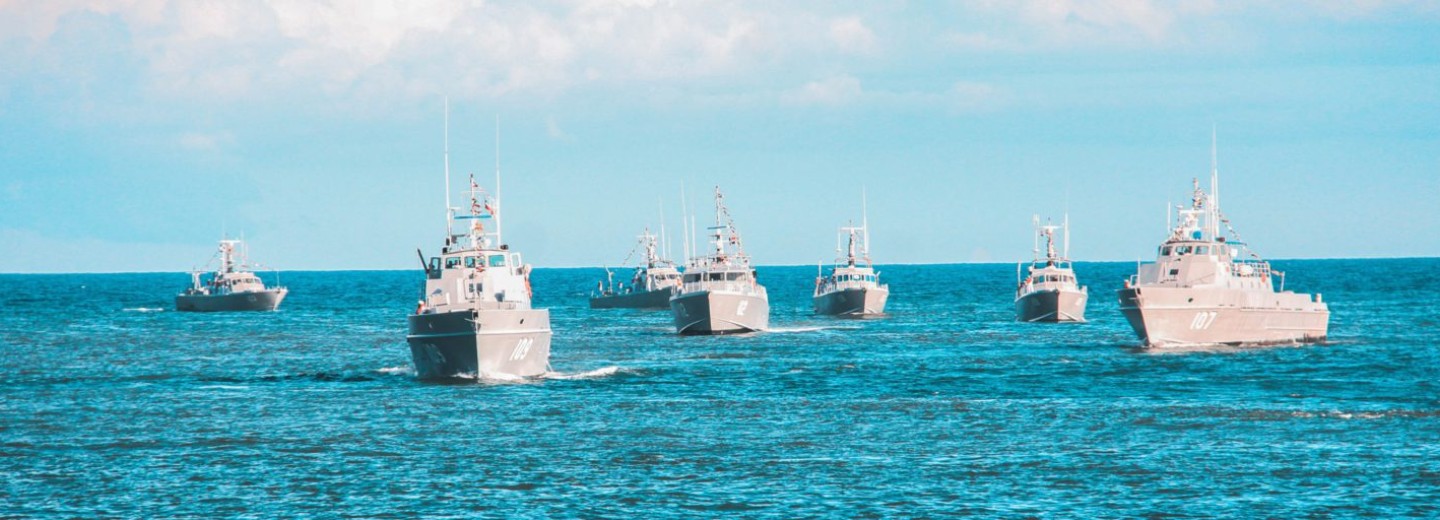China and sea power
Introduction
This is the third in a series of reviews of Chinese history as seen through the eyes of experts. The first, ‘Todays’ Great Game’, tells of the exploitation of China by foreign powers in the 18thand 19th centuries. The second, ‘Why China Slept’ shows how China became vulnerable to this exploitation. ‘Miles Apart’ serves as an introduction to the series by describing China’s 4000 years of a culture that has no parallel elsewhere.
Purpose
My purpose is to show why the China we see today is inevitable. Former world powers see China as a threat to their dominance. But is this so bad for the world? History shows that nations that engage and compete become stronger. The way to tackle competition is to understand it.

One of the books that helps us do this better is ‘China Reconnects’ by Professor Wang Gungwu. The Professor is a distinguished academic who has held many senior roles in universities around the world. I was privileged to know him when he was Vice-Chancellor of the University of Hong Kong between 1986 and 1995.
Professor Wang traces China’s fall to lack of naval power – as did Professor Leung in ‘Why China Slept’. Western nations developed their naval power over centuries and ruled large parts of the world as a result. Late Imperial China became, to them, another colony with which to trade. China never had the desire – or until it was too late – the need, for a navy.
The 1912 revolution, inspired by the experience of France and the United States, led to chaos in China because nobody understood what this meant. Chinese history and culture would never have allowed the people of China to comprehend the risks. Be careful what you wish for!
That is almost as true today.
60 years of chaos followed the overthrow of the last imperial dynasty. Finally, the reforms that Deng Xiaoping began in 1978, among many other things, allowed China to develop a modern navy. “When the western media talk about how this navy is seeking to threaten or conquer the world, it is simply alarmist nonsense,” writes Professor Wang. “China will not be able to do that…what they really want is to be credible as a maritime nation, one that can defend the market economy on which they now heavily depend.”
The importance of naval power to China is echoed by another writer, former journalist, Tim Marshall. His ‘Prisoners of Geography’ brilliantly explains the realities of geo-politics.
Tim Marshall writes of an incident in 2006 when a Chinese submarine surfaced in the middle of a United States battle fleet in the East China Sea. The North Americans were devastated and angry. Devastated because they had not spotted the submarine; angry because ‘it should not have been there’. They protested loudly and emphatically. The Chinese reaction was the equivalent of “What a coincidence, us surfacing in the middle of your battle group which is off our coast. We had no idea!”

This was a clear message to the world and to the USA. ‘We will never be a ‘colony’ again; we are now a maritime power.”
Western media often paint China as a dangerous, autocratic, enemy bent on taking over the world. The truth is that the ‘causes’ these writers espouse (democracy, human rights) are irrelevant. China needs security and defence, just every country does. Western powers are objecting to something they themselves regard as essential.
Examples
As an example, let us first look at Tibet.
There are historical reasons for China’s reclaiming of Tibet. These are not as important when compared to the geo-political reasons, as Tom Marshall demonstrates. First, China needs a buffer against India, a huge and populous country that could threaten China at some point as it has in the past. Second are the major rivers and thus water supplies that China cannot afford not to control. It is that simple.
The citizens of Tibet have benefitted greatly from Chinese investments in infrastructure, hospitals, education and overall modernisation.

Similarly, the United States’ interventions in Central and South America or the Middle East occur because the USA sees its strategic interests threatened and acts. Human rights, collateral civilian casualties and other considerations do not come into it. Sadly, the citizens of these countries do not seem to have benefitted as greatly as the Tibetans from the USA’s intervention in their lives.
As a second example, consider Xinjiang. China has always had trouble in Xinjiang and probably always will. China needs Xinjiang as a buffer in the same way as it needs Tibet. Xinjiang borders Russia, Mongolia, Kazakhstan, Kirgizstan, Tajikistan, Afghanistan, Pakistan and India. Six of these countries are Muslim dominated. In times of ISIS and other Muslim terrorism, it is easy to see why China sees the need for firm control.
Utilitarianism is an ethical theory that determines right from wrong by focusing on outcomes. The most ethical choice is the one that will produce the greatest good for the greatest number of citizens. Some call this democracy. Governments, whether democratic or autocratic, from the East or the West are aware of the need to satisfy the majority of their citizens. The Chinese Government has 1.4 billion citizens for whom to achieve the greatest good.
Conclusion
All Governments need to take hard decisions for their people. Sometimes this adversely affect minorities. Whether it is protecting borders on land or at sea, China is no different from every other nation.
It is hypocritical to pretend otherwise.
Worked on the article:

Wanlikhang





